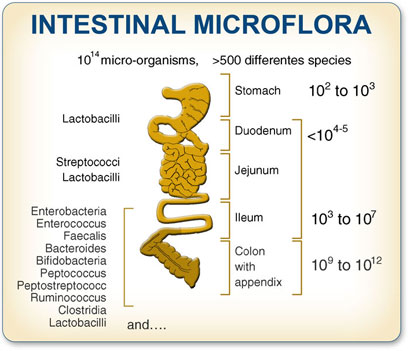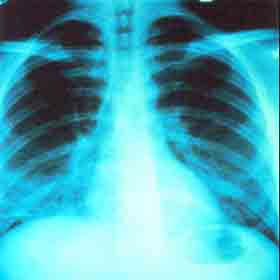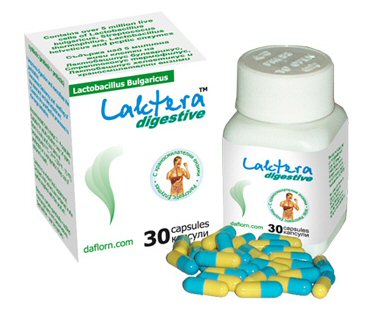Most healthy adults who are sick with pneumonia, one can see their doctors in the office, and then treated at home. However, any worsening of symptoms or increased breathing problems requiring immediate medical intervention. Up to 75% of people with pneumonia can recover at home. However, it is important to consult a doctor immediately if signs of severe pneumonia occurs. These symptoms may include a temperature of less than 95jF (35jC) or more 104jF (40jC), resting heart rate (HR) 125 beats per minute or more, or resting respiratory rate of 30 breaths per minute or more. You should immediately seek help if your lips or nail plates begin to turn dark gray or blue, or if you have to work so hard to breathe, that you become tired. Become confusion, dizziness or fainting are signs that hospitalization may be necessary. Oxygen, intravenous medications and careful monitoring may be necessary for people with severe pneumonia. Do not hesitate to seek medical help if you suspect that your pneumonia worse. Dial 911 or 0 for an ambulance for any worsening of breathing problems, or dizziness or fainting. Do not try to behave in a hospital. Table 4. PPWarning signs of pneumonia seriously
People at increased risk may have to stay in the hospital for treatment of his pneumonia. Pneumonia can be life threatening, especially for the elderly, people with weakened immune systems, and other health problems. Your doctor may have to perform tests and ask you many questions to help decide if you want to go to the hospital to treat your pneumonia, or if you can recover at home. Smoking when ill pneumonia can make your illness worse and delay recovery. Smoking reduces the ability of cilia in the lungs to function effectively. Cilia are small, similar to hair cells that move to propel secret microbes and foreign particles from the lungs. Having trouble coughing additional selections in the lungs can make you feel worse and not feel sick longer. Your doctor may tell you about a number of products and programs to help you quit smoking. Drink plenty of fluids (preferably water), eat healthy food and a lot of rest. Over the counter medications such as aspirin or acetaminophen (Tylenol) may help with fever and muscle aches. Your doctor may also recommend expectorant to loosen mucus in the lungs. Table 5. PPWays take care of yourself during recovery from pneumonia

doctor is the best source of information about drug choices available to you. Most people with pneumonia do not need a medical procedure. Rarely, pus can accumulate in the lungs (pleura) and drain fluid, it may be necessary. Empyema refers to pus-filled pockets in the lungs. Empyema occurs when fluid that normally exist to help keep lungs lubricated infected. Only about 1% to 2% of people with pneumonia, empyema experience serious enough to require hospitalization. If left untreated, empyema may result in pneumonia, continues, and permanent scarring in the lungs can occur. Permanent scarring of the lungs can cause shortness of breath, dry cough, or, and fatigue. A healthy diet is important for the immune system to work properly. Eat a diet high in simple sugars has been shown to interfere with the functioning of the immune system. Try to avoid products containing processed sugar. Antioxidants (vitamins A, C and E) are essential for healthy immune function. Make sure there are many dark green leafy vegetables (broccoli, spinach) and orange or yellow fruits and vegetables (carrots, oranges, mangoes, apricots). Zinc helps the immune system, contributing to a higher resistance to certain diseases. Ask your doctor whether to take zinc, and if so, how much and how often to take it. Large doses of zinc can cause nausea, vomiting and diarrhea. Taking more than 40 milligrams of zinc per day for long-term basis could damage the immune system and prevent copper absorption. Some herbs can help stimulate the immune system that can help your body fight infection. However, people with autoimmune diseases, may need to avoid immune-stimulating herbs. Echinacea (Echinacea purpurea) appears to stimulate immune function in vitro, but in real life, study effects were not very dramatic. Goldenseal (Hydrastis Canada) appears to stimulate the immune system and acts as an antibiotic in laboratory studies. It is often combined with Echinacea. Astragalus has been shown that the immune stimulant in several studies. Marshmallow probably stimulates the activity of white blood cells and reduce inflammation. Slippery elm has been used for its sedative and antitussive agent (cough suppression) effect in bronchitis. Often available as tablets. Horseradish has been used to combat respiratory infections and seems to have antibacterial activity. Mullein seems expectorant that may be useful in bronchitis. Siberian ginseng is usually used for its immune stimulating effect. Wild indigo plant with other immune demonstrated the stimulating effect. Garlic (Allium seed) has antibacterial properties. Alternative therapies should not be used as a substitute for medical care. You should always tell your doctor or pharmacist what medicines you take, for example, prescription or sold over the counter medicines, herbs, vitamins or other supplements. Alternative therapies may react poorly with some prescribed or nonprescription drugs. Taking herbs, vitamins or other supplements may interfere with laboratory tests, treatment after surgery or illness, or may worsen some disease and health. Your doctor and pharmacist can help you select the additional treatments or supplements that are right for you. Pregnant women who are on the second or third trimester may receive the vaccine against influenza. Although it is rarely, pneumonia can be dangerous for a pregnant woman and her unborn child. It is important to try to prevent a disease that can lead to pneumonia, such as influenza. If a pregnant woman does not get pneumonia in the early treatment can help to ensure a healthy baby and avoid complications such as premature birth. Pneumococcal vaccine is also recommended for pregnant women at high risk of respiratory infections. Women of high risk include smokers and people with chronic bronchitis. As Pneumococcal vaccine is protective for six or more years, pregnant women should talk to their doctor about the case they should be revaktsynovani. How long it takes people to recover from pneumonia, depending on their age, overall health, and cause pneumonia. People also do better if they were caught pneumonia and early treatment. Most adults return to normal activities within a week after pneumonia. Middle-aged and older people may take longer to recover their strength. In addition, some types of pneumonia takes longer to get more than others. Tiredness and cough can persist for weeks after a person is recovering from pneumonia. It is important for those recovering from pneumonia and will take care of yourself, avoid sick people and a lot of rest. When a person has pneumonia may develop complications that can be serious and even life threatening. Most people with pneumonia have a mild form strattera cost of disease. However, the disease can have serious consequences for those in high risk groups [
]. About 15% of people with pneumonia should be treated in the hospital, and 10% to 14% of those hospitalized with pneumonia die. People over 65 account for 50% of cases of pneumonia, and 90% of pneumonia deaths. Table 6. PPComplications from pneumonia
If symptoms worsen at any stage of treatment, contact your doctor. Most of the time, pneumonia, which occurs in other healthy people can be treated at home. If you have pneumonia and restoration of the building, it is important that you allow your doctor if you are not getting better or worse if your pneumonia. Proof that you do not get the best include fever, which remains high, excessive sleepiness, shortness of breath. Consult your doctor immediately if you experience any of these signs. However, keep in mind that it is normal cough to linger for a few days or weeks after successful treatment, even after other symptoms disappear. After the first medical visit, follow your doctor within one to three days to make sure that your treatment. You may also need to visit the office during the week, and again four to six weeks after starting treatment. If you have the original X-ray, which showed pneumonia, your doctor will want to repeat X-ray of 4 to 6 weeks to make sure the pneumonia resolved. If you have bacterial pneumonia, you should start to feel better within one to three days after beginning antibiotic therapy. During this time you should follow your doctor to discuss how you feel, and if the symptoms have improved or deteriorated. Also tell your doctor if you have any problems with your medication, such as unpleasant side effects. Your doctor may ask you to again visit the office one week after treatment and again at four to six weeks after treatment. Visit allow the doctor to make sure that the infection is cleared from the lungs, and to rule out any complications. .






